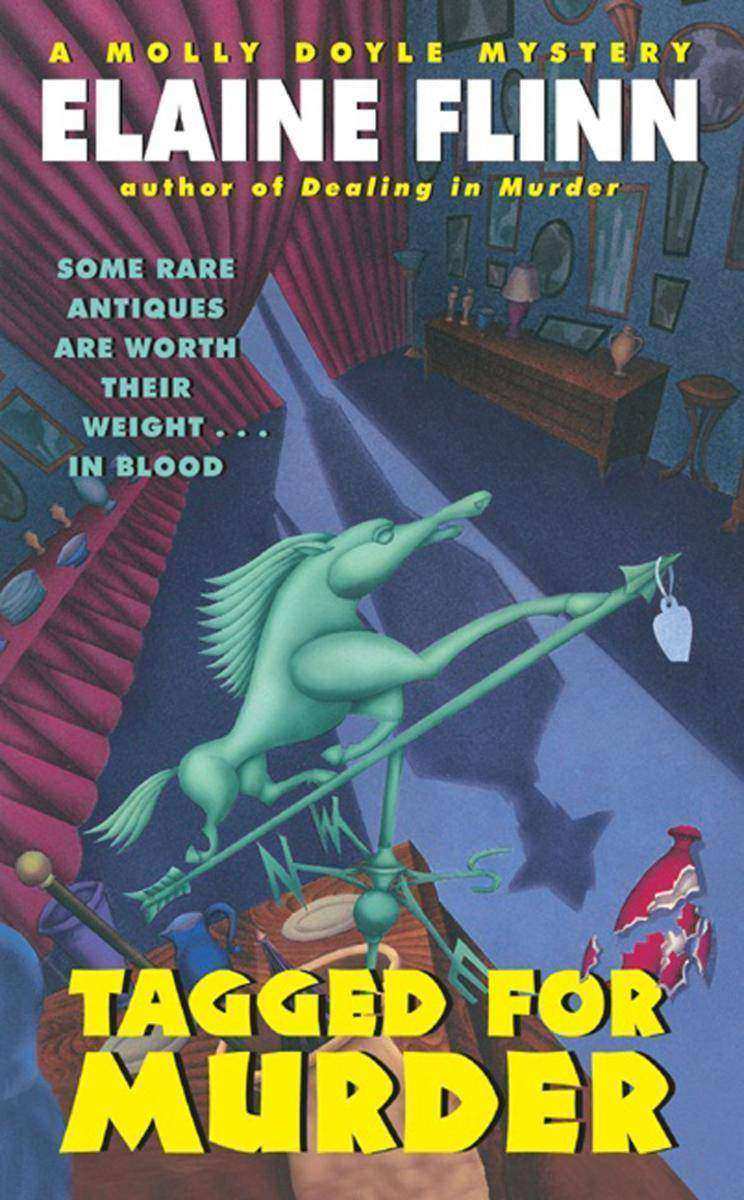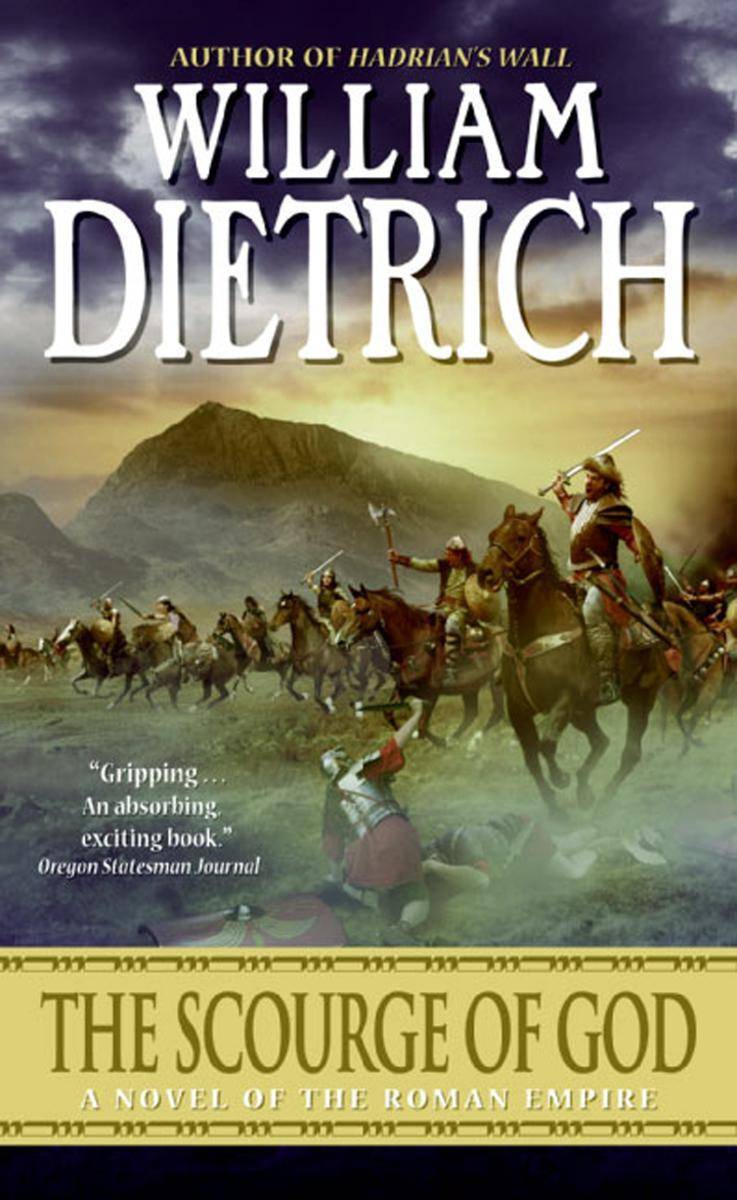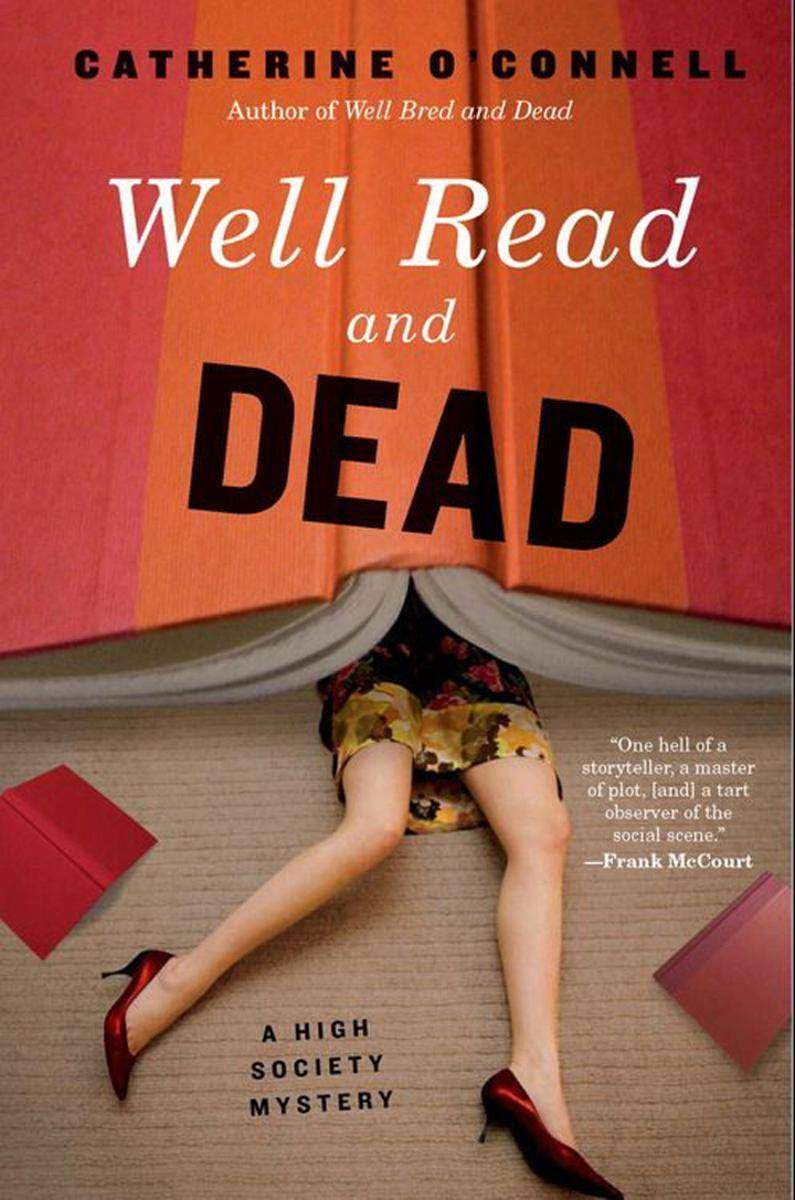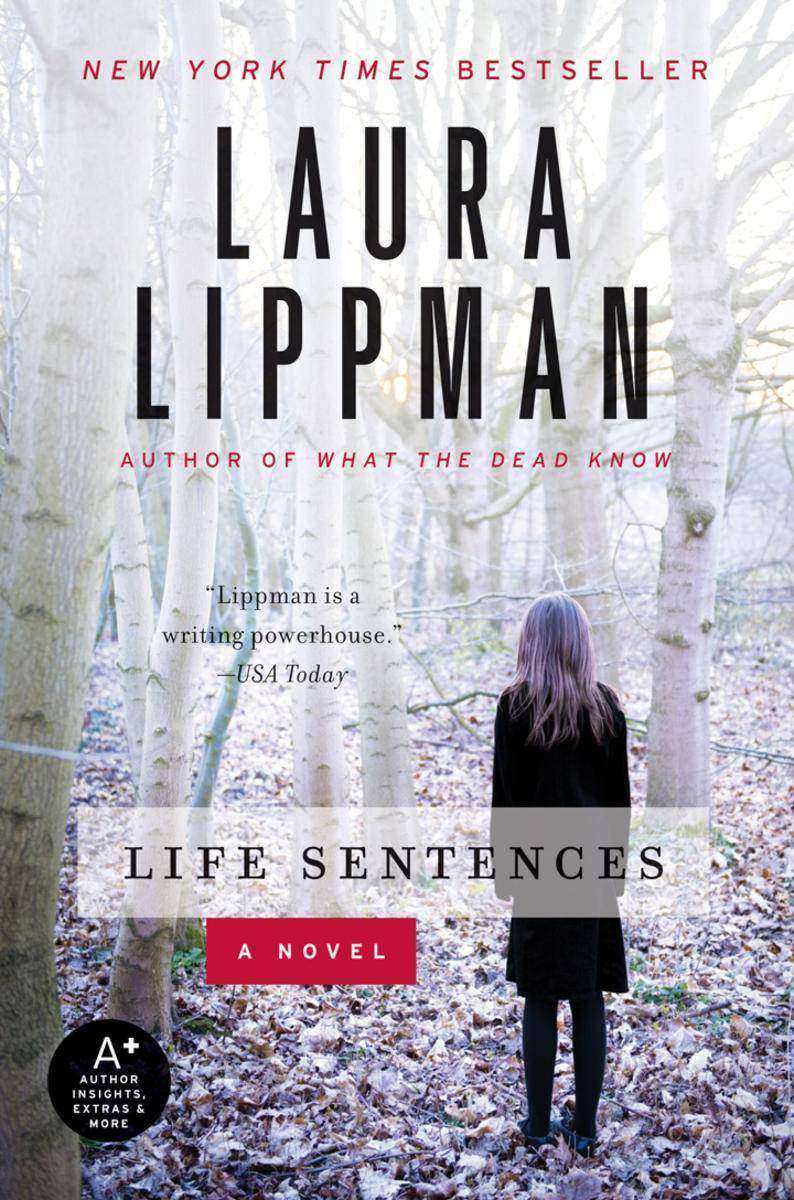
Tagged for Murder
¥48.91
The second page-turning instalment in the acclaimed mystery series featuring striking, sarcastic antique dealer Molly Doyle, set in picturesque Carmel, California.Molly Doyle crossed a continent to escape trouble, but it's becoming increasingly dangerous to be in the antique business in her small adopted corner of California. The murder of a friend and fellow antiques dealer has shaken Molly to the core. And matters aren't helped any by the arrival of her deceitful, long-estranged sister-who sticks around only long enough to dump Molly's twelve-year-old niece before vanishing to parts unknown. Actually, young Emma is a bright spot in these dark days, since she's clever, endearing, and shows a natural aptitude for antiques work.But the very unnatural death of yet another dealer-a rather shady one this time with possible ties to Molly's family-has the intrepid Ms. Doyle acting as sleuth once again.before a killer decides she's the next item to be taken out of circulation permanently.

Tears of a Class Clown
¥84.16
Have you ever suffered from FUNNY GIRL SYNDROMEAre you the gal who makes people laughAre you considered "a lot of fun" and "a good sport"Do all your male friends bring you their troubles and ask for your advice––about their girlfriendsIf so, you will relate to Nina––a wry, hip, hilarious gal who is sure to make you laugh. Nina has a roommate who showers with her cat. Nina has a college education she hasn't used. And Nina has waited tables at Bellyaches Comedy Den in Boston for way too long... She's heard it all: mother jokes, sister jokes, chick jokes, and fat jokes. And then some. She's served beer to half–broke hipsters, drinks to businessmen with bad dates, and occasionally hears something truly hilarious. But what Nina hides from the world is that she is FUNNY. Because she has suffered in the past from Funny Girl Syndrome––you know, she makes you laugh but you won't take her on a date. But all that's about to change, because it's high school reunion time. And there's nothing like facing a gym–full of people you knew back ten years ago to make you want to pull up your socks and shine.

After the Wreck, I Picked Myself Up, Spread My Wings, and Flew Away
¥50.47
In the raw was how the world felt now. My feelings were raw, my thoughts were raw and hurtful like knife blades. . . . In the blue had been my place to hide, now In the raw there was nowhere to hide.Jenna Abbott separates her life into two categories: before the wreck and after the wreck. Before the wreck, she was leading a normal life with her mom in suburban New York. After the wreck, Jenna is alone, trying desperately to forget what happened that day on the bridge. She's determined not to let anyone get close to her -- she never wants to feel so broken and fragile again. Then Jenna meets Crow. He is a powerfully seductive enigma, and Jenna is instantly drawn to him. Crow is able to break down the wall that Jenna has built around her emotions, and she surprises herself by telling him things she hasn't told anyone else. Can Jenna bring herself to face the memories she's tried so hard to erase?

Ice Hunt
¥70.10
Carved into a moving island of ice twice the size of the United States, Ice Station Grendel has been abandoned for more than seventy years. The twisted brainchild of the finest minds of the former Soviet Union, it was designed to be inaccessible and virtually invisible. But an American undersea research vessel has inadvertently pulled too close—and something has been sighted moving inside the allegedly deserted facility, something whose survival defies every natural law. And now, as scientists, soldiers, intelligence operatives, and unsuspecting civilians are drawn into Grendel's lethal vortex, the most extreme measures possible will be undertaken to protect its dark mysteries—because the terrible truths locked behind submerged walls of ice and steel could end human life on Earth.

Wife for Hire
¥55.31
Hank Mallone knows he's in trouble when Maggie Toone agrees to pretend to be his wife in order to improve his rogue's reputation. Will his harebrained scheme to get a bank loan for his business backfire once Maggie arrives in his small Vermont town and lets the gossips take a look?Maggie never expected her employer to be drop-dead handsome, but she's too intrigued by his offer to say no . . . and too eager to escape a life that made her feel trapped. The deal is strictly business, both agree, until Hank turns out to be every fantasy she ever had.

Wild Justice
¥70.10
Seven years ago, Phillip Margolin seized the imagination of thriller readers everywhere with his chilling breakout bestseller, Gone, but Not Forgotten. After five subsequent New York Times bestsellers, Margolin now returns to the haunting terrain of Gone, but Not Forgotten with a mesmerizing tour de force of psychological suspense, an electrifying tale of revenge and retribution that shows a master storyteller at the very peak of his craft.Thursday: Subject is still combative after four days of applied pain, sleep deprivation and minimal food.Vice squad detective Bobby Vasquez, for months on the trail of a slippery underworld figure, receives an anonymous tip that directs him to a mountain cabin. He races through the idyllic Oregon woods, expecting to close the book on a long-standing vendetta. What he finds instead opens a Pandora's box of horror that will haunt him to his dying day.8:10: Subject bound and gaffed and placed in upstairs closet at end of hall. Turned out lights in house, drove off, then parked and doubled back. Watched from woods.Within hours, Vincent Cordoni -- a brilliant surgeon with a history of violence and drug abuse -- is arrested for a heinous crime. Facing a seemingly insurmountable wall of evidence, he turns to Portland's top criminal defense attorney, Frank Jaffe-who, along with his ambitious daughter, Amanda, must put on an inspired defense. Amanda's first taste of criminal defense work is as intoxicating as it is chilling, but it raises moral questions she's loath to address. Is she defending an innocent manOr is she using her considerable skills to set a monster freeThen Cardoni disappears under bizarre circumstances. Four years later, a second set of murders has begun ....8:55: Subject exits house, naked and barefoot, armed with kitchen knife. Remarkable strength of character. Breaking her will be a challenge.Has Cardoni resurfaced to ply his deadly trade anewIs there a copycat killerOr has the real killer been someone else all alongThe police will do everything they can to stop Cardoni -- but they have to find him first.Following a twisting trail of clues, including a harrowing diary that clinically records the killer's horrible deeds, Amanda Jaffe and Bobby Vasquez join the hunt-and themselves become targets of the twenty-first century's first genuinely monstrous psychopath. :

The Scourge of God
¥55.31
For fans of the movie Gladiator comes this bloody account of the clashing of civilizations, as Attila the Hun, "The Scourge of God," struggles to overthrow the Roman Empire. The Roman Empire is weakening. In 367 AD, approximately eight years after the great battle at Hadrian's Wall, Roman garrisons begin to hear rumors of barbarian tribes massing to the north. By 449 AD, Attila, the ruler of the Huns, has become the continent's most powerful monarch, his reputation in battle earning him the title "The Scourge of God." Anticipating an imminent attack by the Huns, Roman leaders negotiate with one of Attila's lieutenants, convincing him to play the part of assassin. He is joined on his mission by a Roman citizen, Jonas, an ambassador dispatched to negotiate a peace treaty with the Huns. When the plot is discovered, Jonas becomes a hostage, forced to fight for his captors if he wishes to remain alive. But he soon learns that Attila intends to conquer Rome itself, and is caught between two mighty empires, both poised for one of the greatest conflicts the world has ever seen. Jonas, knowing his life could be forfeit, has the potential to tip the battle in either direction––and his decision will alter the face of Western civilization. For readers of historically nuanced thrillers and adventure stories by authors like Bernard Cornwell and Colleen McCullough. For readers interested in Roman and Barbarian culture and warfare.

Manhunt
¥55.31
A woman with a talent for numbers, Alexandra Scott wanted to escape the rat race and go someplace where the men outnumber the women. Trading in her Wall Street job and fancy condo for a rundown cabin in the woods. She's now Alaskan Wilderness Woman. It isn't long before she finds exactly what she's looking for: one sexy pilot named Michael Casey. But this confirmed bachelor has no intentions of getting caught in any woman's crosshairs—especially a hunter as appealing as Alex. It'll take skill, determination, and a little romantic persuasion for this big-game hunter to bag her prey.

An Avon True Romance: Samantha and the Cowboy
¥28.01
SamanthaWhen she manages to get herself hired for the cattle drive, all of Samantha's prayers seem to be answered. The hundred dollars she'll earn will pull her family's Texas farm out of ruin and pay off their debts. But keeping the cowhands fooled that she's a boy becomes harder than she'd expected where one cowboy in particular is concerned.The CowboyMatthew Hart wants two things: to forget the tragedies he witnessed on the front lines of the War Between the States, and to reclaim his cowboy life. The last thing he wants is the responsibility of a tagalong youngster on the cattle drive. His closed mind and hardened heart are territory best left unexplored, until a fateful moment turns his world upside down.Matt discovers what and who "Sam" really is, and he is furious. But soon a stronger emotion takes hold, and bound by Samantha's secret, Matt is torn between revealing her identity and his own sudden and frightening love for her.

Skinwalkers
¥69.16
Three shotgun blasts explode into the trailer of Officer Jim Chee of the Navajo Tribal Police. But Chee survives to join partner Lt. Joe Leaphorn in a frightening investigation that takes them into a dark world of ritual, witchcraft, and blood—all tied to the elusive and evil "skinwalker." Brimming with Navajo lore and sizzling suspense, Skinwalkers brings Chee and Leaphorn, Hillerman's bestselling detective team, together for the first time.

Worst Fears Realized
¥69.16
Not a man to dwell on the past, Stone Barrington has no choice but to rattle old skeletons when the people closest to him start dying, and he has little to go on but the suspicion that the killer might be someone he once knew. The trip down memory lane isn't all bad though, for it reunites Stone with his ex-partner, Dino Bacchetti, now head of detectives in the nineteenth precinct.Trying to find a brilliant killer in a sea of old faces is difficult enough without Stone's former love, Arrington, now Mrs. Vance Calder, resurfacing too—especially when she sets off her own fireworks coming nose to nose with his latest flame, a Mafia princess as beautiful as she is dangerous.Caught on a thrill ride of a case that tests him as none has ever done before, Stone races to find a twisted madman with a taste for blood vengeance, with only a prayer to find him before Stone's worst fears are realized.

The Ghostway
¥70.10
Old Joseph Joe sees it all. Two strangers spill blood at the Shiprock Wash-O-Mat. One dies. The other drives off into the dry lands of the Big Reservation, but not before he shows the old Navajo a photo of the man he seeks.This is all Tribal Policeman Jim Chee needs to set him off on an odyssey that moves from a trapped ghost in an Indian hogan to the seedy underbelly of L.A. to an ancient healing ceremony where death is the cure, and into the dark heart of murder and revenge.

Heretic
¥95.39
Already a seasoned veteran of King Edward's army, young Thomas of Hookton possesses the fearlessness of a born leader and an uncanny prowess with the longbow. Now, at the head of a small but able band of soldiers, he has been dispatched to capture the castle of Astarac. But more than duty to his liege has brought him to Gascony, home of his forebears and the hated black knight who brutally slew Thomas's father. It is also the last place where the Holy Grail was reported seen. Here, also, a beautiful and innocent, if not pious, woman is to be burned as a heretic. Saving the lady, Genevieve, from her dread fate will brand Thomas an infidel, forcing them to flee together across a landscape of blood and fire. And what looms ahead is a battle to the death that could ultimately shape the future of Christendom.

The Sky Is Falling
¥145.55
If America had a royal family, the Taylor Winthrops would wear the crown. The popular, charismatic Winthrops have captured the imagination of the world with their public service, their enormous charity, and their glamorous lives. But in the period of one year., all five members of the family are killed in a series of accidents. Beautiful young anchor woman Dana Evans begins an investigation and starts unraveling compelling evidence that she can hardly believe.In her determined pursuit of the truth, Dana never anticipated the cat-and-mouse chase that leads her through a half dozen countries in search of a remorseless killer. As she closes in on her suspect, the shocking secrets she uncovers place Dana and her young son in dire jeopardy. Can Dana outwit her pursuers and expose the truth that will astound the world?A dynamite thriller filled with all the elements that have made his previous works phenomenal bestsellers) The Sky Is Falling is Sidney Sheldon at his sizzling best.

The Nightmare Room Thrillogy #1: Fear Games
¥21.73
Twelve ultra-smart kids have been selected to take part in a survival competition called Life Games, which is being held on a tropical island. But who, or what, is the enemyA 3-part series within The Nightmare Room, the Thrillogy will reveal all...April can't wait to go the Life Games competition. Only eleven other kids were chosen to take part in the tough physical challenges, and April knows she will survive and win the $100,000 prize. What poor April doesn't know is that an ancient evil will be playing in the games as well. And what April will really be competing for...is her life! Who Will SurviveRead all three books in The Nightmare Room Thrillogy to find out!

The Ballad of West Tenth Street
¥79.38
Once upon a time in Manhattan . . .. . . there stood a pair of fine old brick townhouses on West Tenth Street. One had a blue door with a tarnished brass knocker in the shape of a dolphin. The other was empty. Behind the blue door lived Sadie, the widow of a famous British rocker who died of an overdose, and two of her children, Hamish and Deen.The children manage to muddle along as best they can with a loving but distracted mother. But their whole world changes when the house next door gets a new owner—a mysterious Southerner who quickly endears himself to his new neighbors, taking them—and their friends—under his protective wing. In doing so, he transforms everything.Magical, lively, lovely, and unique, The Ballad of West Tenth Street is a contemporary urban fairy tale that delightfully reimagines real life.

The King's Rifle
¥85.05
It's winter 1944 and the Second World War is entering its most crucial state. A few months ago fourteen-year-old Ali Banana was a blacksmith's apprentice in his rural hometown in West Africa; now he's trekking through the Burmese jungle. Led by the unforgettably charismatic Sergeant Damisa, the unit has been given orders to go behind enemy lines and wreak havoc. But Japanese snipers lurk behind every tree—and even if the unit manages to escape, infection and disease lie in wait. Homesick and weary, the men of D-Section Thunder Brigade refuse to give up. Taut and immediate, The King's Rifle is the first novel to depict the experiences of black African soldiers in the Second World War. This is a story of real life battles, of the men who made the legend of the Chindits, the unconventional, quick-strike division of the British Army in India. Brilliantly executed, this vividly realized account details the madness, sacrifice, and dark humor of that war's most vicious battleground. It is also the moving story of a boy trying to live long enough to become a man.

Well Read and Dead
¥78.55
The return of blue-blooded fashionista Pauline Cook, whose search for a missing friend leads her from an iconoclastic book group to the deepest and most unfashionable reaches of the Far East.Back in Chicago after a disastrous European love affair, socialite Pauline Cook finds her finances nearly depleted, her co-op a shambles, and her best friend mysteriously missing—vanished along with Pauline's cat. Though Whitney Armstrong's husband offers a substantial reward for the return of his lost wife, Pauline can't help suspecting that his grief is merely an act. But it's a shocking suggestion by a member of Whitney's book club that really gets Pauline moving—halfway around the world, in fact, to Thailand . . . in spite of a psychic's warning of terrible danger.In Asia, a morass of dark motives and deadly corporate intrigues await the intrepid globe-trotter. And all the high society connections in the world aren't going to ensure that Pauline makes it home alive. . . .

Life Sentences
¥83.92
Author Cassandra Fallows has achieved remarkable success by baring her life on the page. Her two widely popular memoirs continue to sell briskly, acclaimed for their brutal, unexpurgated candor about friends, family, lovers—and herself. But now, after a singularly unsuccessful stab at fiction, Cassandra believes she may have found the story that will enable her triumphant return to nonfiction.When Cassandra was a girl, growing up in a racially diverse middle-class neighborhood in Baltimore, her best friends were all black: elegant, privileged Donna; sharp, shrewd Tisha; wild and worldly Fatima. A fifth girl orbited their world—a shy, quiet, unobtrusive child named Calliope Jenkins—who, years later, would be accused of killing her infant son. Yet the boy's body was never found and Calliope's unrelenting silence on the subject forced a judge to jail her for contempt. For seven years, Calliope refused to speak and the court was finally forced to let her go. Cassandra believes this still unsolved real-life mystery, largely unknown outside Baltimore, could be her next bestseller.But her homecoming and latest journey into the past will not be welcomed by everyone, especially by her former friends, who are unimpressed with Cassandra's success—and are insistent on their own version of their shared history. And by delving too deeply into Calliope's dark secrets, Cassandra may inadvertently unearth a few of her own—forcing her to reexamine the memories she holds most precious, as the stark light of truth illuminates a mother's pain, a father's betrayal . . . and what really transpired on a terrible day that changed not only a family but an entire country.

Forbidden Boy
¥50.47
Julianne's Summer Rules:Finish all art projects by AugustSurvive summer job surrounded by cute boysHit the beach every dayAvoid the new neighbors (even though their son is hot!) When Julianne falls for Remi at a bonfire party, her summer is off to a perfect start. Sure, her obnoxious new neighbors are muscling her family off their beachfront property, but she has weeks of fun in the sun to look forward to, a painting to finish, and an amazing guy to get to know. Then Jules discovers that her awful new neighbors are Remi's parents. That makes him a forbidden boy—but she can't seem to let him go. What do you do when your worst enemy is also the boy of your dreams?

Getting Lost with Boys
¥50.47
Cordelia Packer hates the unexpected, but she's in for a surprise when Jacob Stein offers to be her travel companion, all the way from San Diego to her sister's place in northern California. Before she knows it, her neatly laid out summer plan has turned into a wild road trip, where anything can – and does – happen. Who knew getting lost with a boy could be so much fun?




 购物车
购物车 个人中心
个人中心



